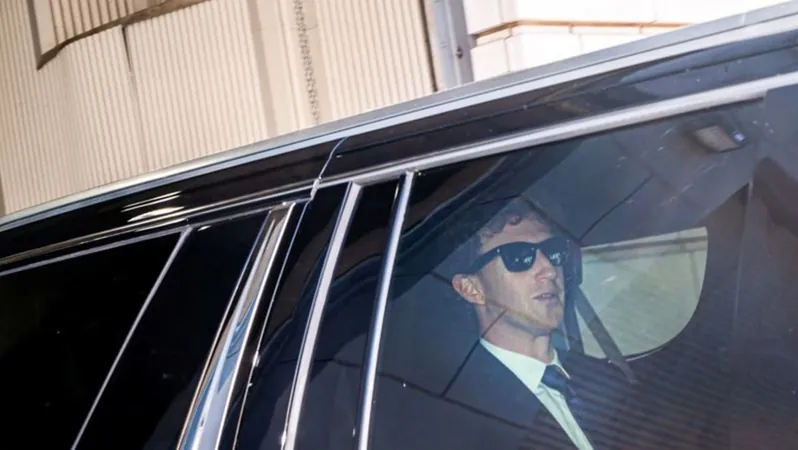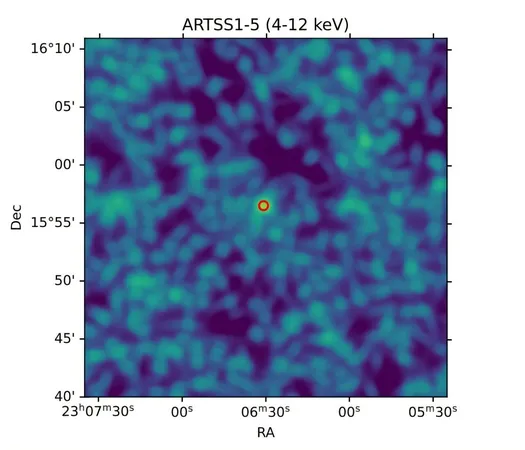
Zuckerberg Rejects Claims of Acquisitions to Eliminate Competition
2025-04-17
Author: Arjun
Meta's Mark Zuckerberg Testifies in Landmark Antitrust Case
In a dramatic courtroom scene on April 16, Meta's CEO Mark Zuckerberg firmly denied allegations that his company acquired popular rivals Instagram and WhatsApp with the intent to eliminate competition. This assertion was made during a pivotal antitrust case, which could compel Facebook's parent company to divest these highly successful platforms.
The Federal Trade Commission's Accusations
Over three days of intense questioning in a federal court in Washington, Zuckerberg challenged the Federal Trade Commission’s contention that Meta systematically absorbed potential rivals to solidify its dominance in the social media landscape. When asked by attorney Mark Hansen if his motive was to neutralize competition by purchasing Instagram and WhatsApp, Zuckerberg responded bluntly, "No."
Why Instagram and WhatsApp?
Zuckerberg explained that he viewed Instagram, acquired in 2012, as a unique asset for its exceptional photo-sharing capabilities rather than a direct threat to Facebook. As for WhatsApp, he admitted that while technically impressive, its founders lacked ambition to maximize its potential. "I basically ended up pushing to add things," he noted, illustrating how Meta aimed to enhance the app’s capabilities.
Building Tech Giants from Acquisitions
Zuckerberg highlighted that Meta utilized its resources to transform Instagram and WhatsApp into global giants, now boasting billions of users. This counters claims by the FTC regarding unfair competitive practices. By investing heavily in both platforms, he argued, Meta turned these acquisitions into significant successes in the social media arena.
Challenging Competition in the Digital Age
Former Meta COO Sheryl Sandberg echoed Zuckerberg’s sentiments, emphasizing the intense competition in the digital domain. She stated that countless producers are vying for users' attention every time they go online, which highlights the environment Meta operates in.
TikTok's Rising Threat
A central focus of the trial is the classification of Meta's market presence. The U.S. government claims that platforms like Facebook and Instagram dominate the social networking space, excluding fierce contenders like TikTok and YouTube. Zuckerberg acknowledged TikTok as a formidable competitor, revealing that the rise of the app has pressured Meta to innovate, leading to the introduction of its own TikTok-inspired feature, Reels.
Zuckerberg's Political Maneuvers
The antitrust case traces back to December 2020, during the Trump administration, with Zuckerberg making strategic attempts to sway political opinion in his favor. His efforts included significant financial contributions to Trump's inauguration fund and purchasing a $23 million mansion close to the political epicenter of Washington, D.C.
The Future of Meta in a Competitive Landscape
Concluding nearly 12 hours of testimony, Zuckerberg made it clear that he finds it unsettling when competitors outperform Meta. With video content becoming increasingly dominant, the challenge from platforms like YouTube continues to reflect the shifting dynamics in the tech industry, prompting Meta to adapt and innovate.





 Brasil (PT)
Brasil (PT)
 Canada (EN)
Canada (EN)
 Chile (ES)
Chile (ES)
 Česko (CS)
Česko (CS)
 대한민국 (KO)
대한민국 (KO)
 España (ES)
España (ES)
 France (FR)
France (FR)
 Hong Kong (EN)
Hong Kong (EN)
 Italia (IT)
Italia (IT)
 日本 (JA)
日本 (JA)
 Magyarország (HU)
Magyarország (HU)
 Norge (NO)
Norge (NO)
 Polska (PL)
Polska (PL)
 Schweiz (DE)
Schweiz (DE)
 Singapore (EN)
Singapore (EN)
 Sverige (SV)
Sverige (SV)
 Suomi (FI)
Suomi (FI)
 Türkiye (TR)
Türkiye (TR)
 الإمارات العربية المتحدة (AR)
الإمارات العربية المتحدة (AR)